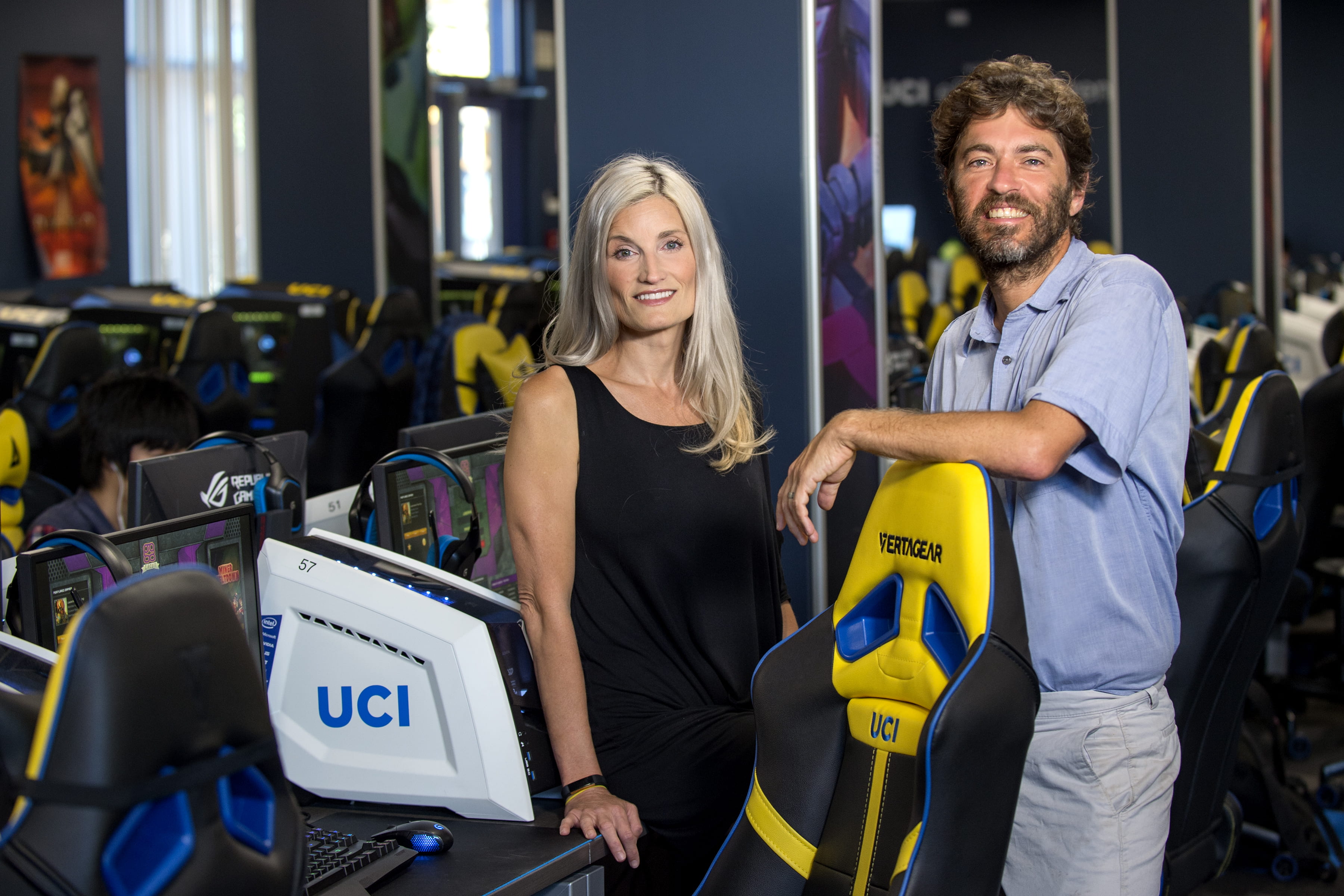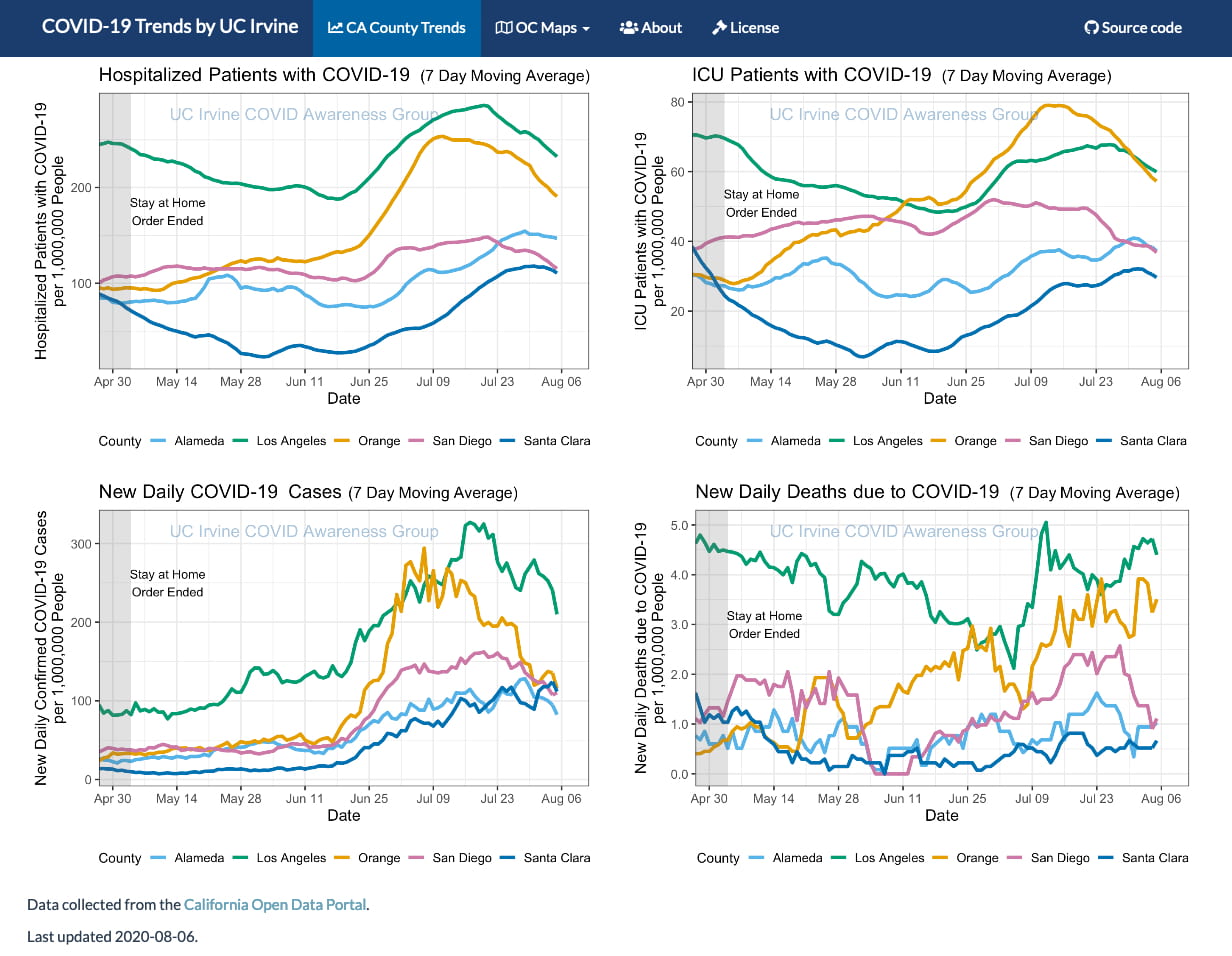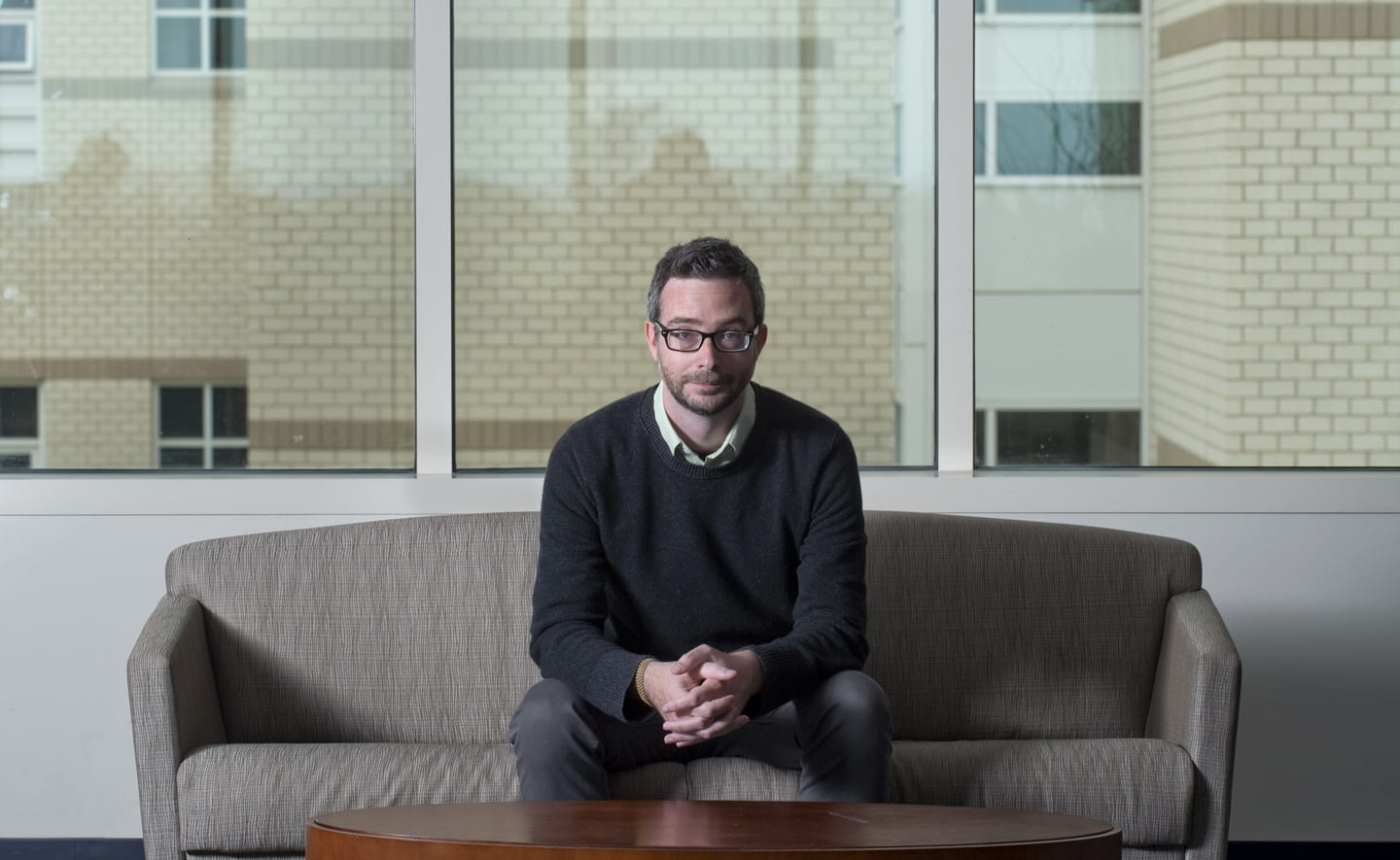UCI informatics professors relaunch center on computer games, learning and society
Research to focus on interactive media in politically tumultuous, post-pandemic time

Irvine, Calif., Sept. 22, 2021 – The intersection of computer games, education and social activism is to be the focal point of a joint center being newly relaunched this fall at the University of California, Irvine by interactive media research and development experts Kurt Squire and Constance Steinkuehler.
The two professors in UCI’s Department of Informatics founded Games + Learning + Society in 2005 while at the University of Wisconsin-Madison. Now they have reimagined it to explore game development and research in a new context dominated by the ongoing COVID-19 pandemic, political upheaval and change in the United States and abroad, and reignited movements supporting racial justice and women’s rights.
In addition, GLS has been redesigned to allow students to take full advantage of UCI’s unique position in Southern California’s computer gaming ecosystem, according to Squire.
“UCI is in the heart of ‘Silicon Beach,’ which means students here have ready access to a host of game developers headquartered in Irvine and other close-by cities,” he said. “Our people get to meet, collaborate with and learn from developers at Blizzard, Activision and other firms both on the UCI campus and at the companies’ facilities – something that’s just not possible to this extent outside this region.”
Squire said another advantage for students in the center is the existing curriculum for UCI’s B.S. in game design & interactive media. Started in 2009, it’s the first such degree offered by a major public university.
“A lot of other programs need to outsource to freelancers to develop game technologies, websites, apps and other properties, but we have those talents in-house here at UCI,” Squire said. “Having these capabilities here at our disposal is a plus over other institutions and means we can focus on letting students harness their creativity to build projects.”
He added that ranking agencies look at how well programs train students for the relevant job market, and UCI excels because graduates gain the experience of working on a game that has been made available to the public by the time they finish.
The main thrusts of GLS, according to Steinkuehler, will be to use digital communities and interactive media to help promote civic engagement, democratic principles, and equity and inclusion. Researchers in the center will explore what fuels online extremism, disinformation, toxicity and harassment and work to combat it. Other projects will help build an understanding of the impact of games in commercial and educational spheres and how to design titles that positively affect learning, health and wellness, and social change.
Steinkuehler said the relaunch of the center stems in part from calls she has heard by others in the games research and development world.
“The sense I get from our community is that people are leaving the pandemic having discovered what matters most to them and what might not matter as much,” she said. “People are really committed to working on national problems, using games as a lens and as a means to address these issues.”
Steinkuehler said people can expect a very different GLS moving forward.
“There is going to be a lot more focus on students as game designers and on games as a craft,” she said. “In the past, the focus was really on the learning part, but now there’s going to be as much, if not more, emphasis on the games and society parts.”
Steinkuehler noted that the game development industry suffered bad publicity more than a decade ago around the issue of violence in video games. That problem has diminished over time, she said, largely because academic researchers were able to put games in a broader spectrum of reasons for societal discord, not the sole cause.
“The main concern now is the incredible sexism in the game development industry – how that impacts its own employees and how it’s reflected in the games they produce and release to the public,” she said. “As a center, we’re interested in solutions and in thinking about what we can do as a community to build trust and tamp down hateful talk and behaviors. GLS will work on design solutions to address these issues.”
Squire said that part of what inspired the relaunching of GLS is what has been happening at UCI over the past five years.
“UCI presents such a great opportunity because it’s a campus that’s really engaged with games – everything from our groundbreaking esports program to our enthusiastic student body,” he said. “On top of that, UCI is really good around issues of diversity and inclusivity. If you put these two together, you come out with a great foundation for a research lab like ours.”
In addition to relaunching GLS, Steinkuehler and Squire have announced that the next GLS Conference will be held on the UCI campus June 15-17, 2022. The event will bring together academic researchers, industry representatives, game designers and developers, government officials, and leaders at nonprofit organizations who are working on national problems or social issues and want to understand games as a vehicle for ameliorating those problems or addressing them in some way. Steinkuehler said the event will be planned and executed entirely by UCI graduate students and interns.
About the University of California, Irvine: Founded in 1965, UCI is the youngest member of the prestigious Association of American Universities and is ranked among the nation’s top 10 public universities by U.S. News & World Report. The campus has produced three Nobel laureates and is known for its academic achievement, premier research, innovation and anteater mascot. Led by Chancellor Howard Gillman, UCI has more than 36,000 students and offers 224 degree programs. It’s located in one of the world’s safest and most economically vibrant communities and is Orange County’s second-largest employer, contributing $7 billion annually to the local economy and $8 billion statewide. For more on UCI, visit www.uci.edu.
Media access: Radio programs/stations may, for a fee, use an on-campus ISDN line to interview UCI faculty and experts, subject to availability and university approval. For more UCI news, visit wp.communications.uci.edu. Additional resources for journalists may be found at communications.uci.edu/for-journalists.
About UCI’s Brilliant Future campaign: Publicly launched on Oct. 4, 2019, the Brilliant Future campaign aims to raise awareness and support for UCI. By engaging 75,000 alumni and garnering $2 billion in philanthropic investment, UCI seeks to reach new heights of excellence in student success, health and wellness, research and more. Learn more by visiting brilliantfuture.uci.edu.


